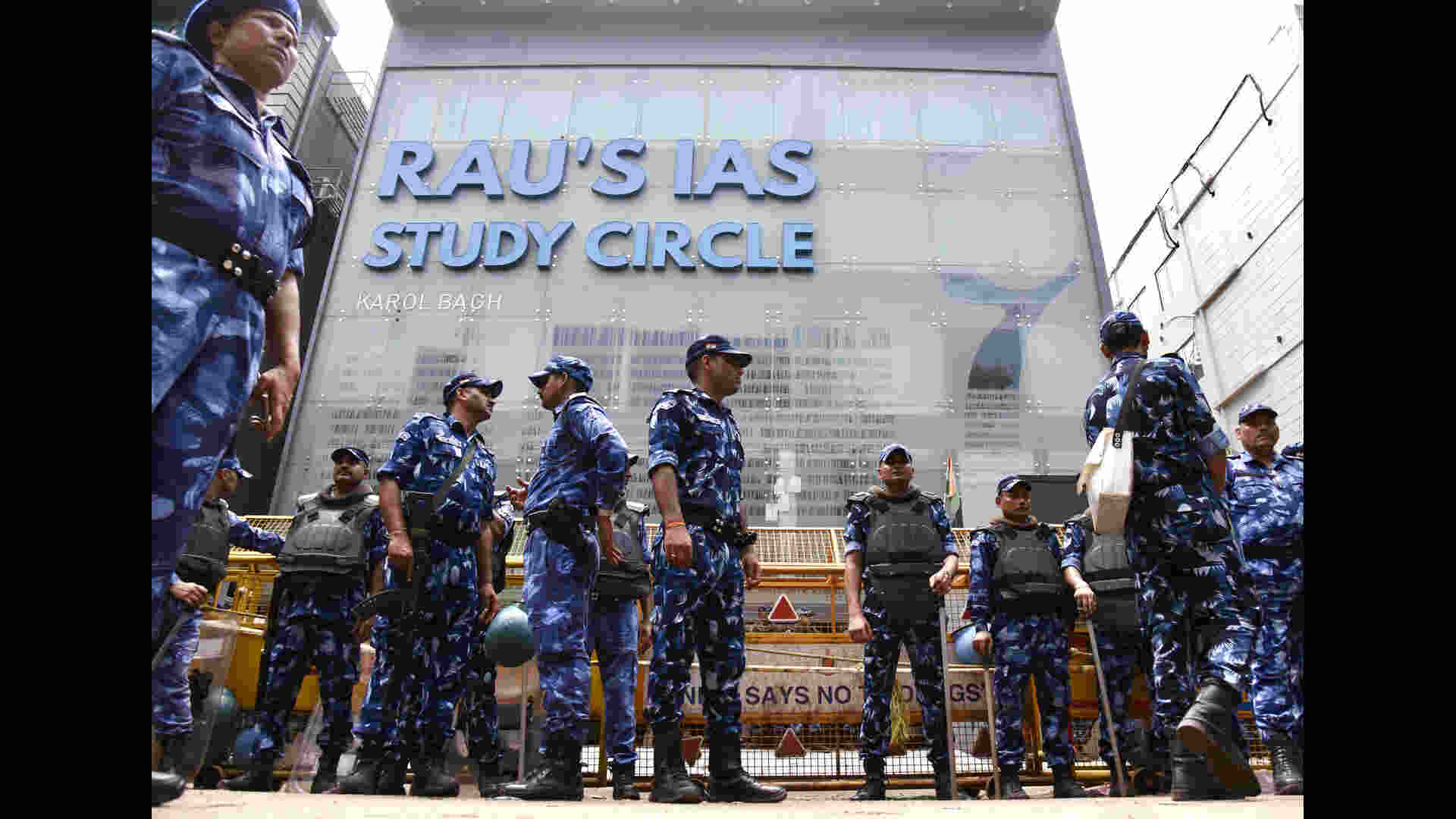The tragic deaths of three UPSC aspirants, trapped in a flooded basement coaching center in Delhi, sent shockwaves across the nation. This was not a mere accident, but a stark indictment of systemic apathy and neglect.
A Culture of Neglect
The subsequent investigations and arrests of driver passing by coaching center and MCD officials exposed a deep-rooted problem. Building violations, potential criminal negligence, and a possible web of corruption came under scrutiny. While the authorities acted, critics questioned the timeliness and extent of their response.
Amidst the investigations, a shameful political blame game erupted between the BJP and AAP, further exacerbating the public’s anger. The tragedy underscored the MCD’s reactive approach to urban management. Surveys, sealing basements, and mandating emergency exits were all damage control measures, raising questions about why such regulations weren’t enforced proactively.
A City Built on Violations
The incident laid bare Delhi’s chaotic urban landscape. Basements, often converted illegally into classrooms and offices, had become ticking time bombs. This tragedy highlighted the urgent need for stricter enforcement of building bylaws.
Students, particularly those from other cities, face immense pressure to succeed in competitive exams. Overcrowded accommodations, exorbitant rents, and the mental toll of this pressure create a vulnerable environment. The tragedy underscored the need for better support systems for these young minds.
Delhi’s infrastructure, ill-equipped to handle heavy rainfall, proved to be a fatal flaw. The incident demanded a comprehensive overhaul of the city’s urban planning, including improved drainage, wider roads, and efficient public transport.
A Call for Change
The delay in taking stringent action against those responsible raised concerns about a culture of impunity. This tragedy must serve as a wake-up call. Delhi needs a complete overhaul, including stricter building regulations, improved safety standards, effective drainage systems, and increased transparency and accountability in governance.
The loss of these young lives is a profound tragedy. It is imperative that their sacrifice not be in vain. We must build a Delhi that is not just prosperous, but safe and secure for all its citizens.







